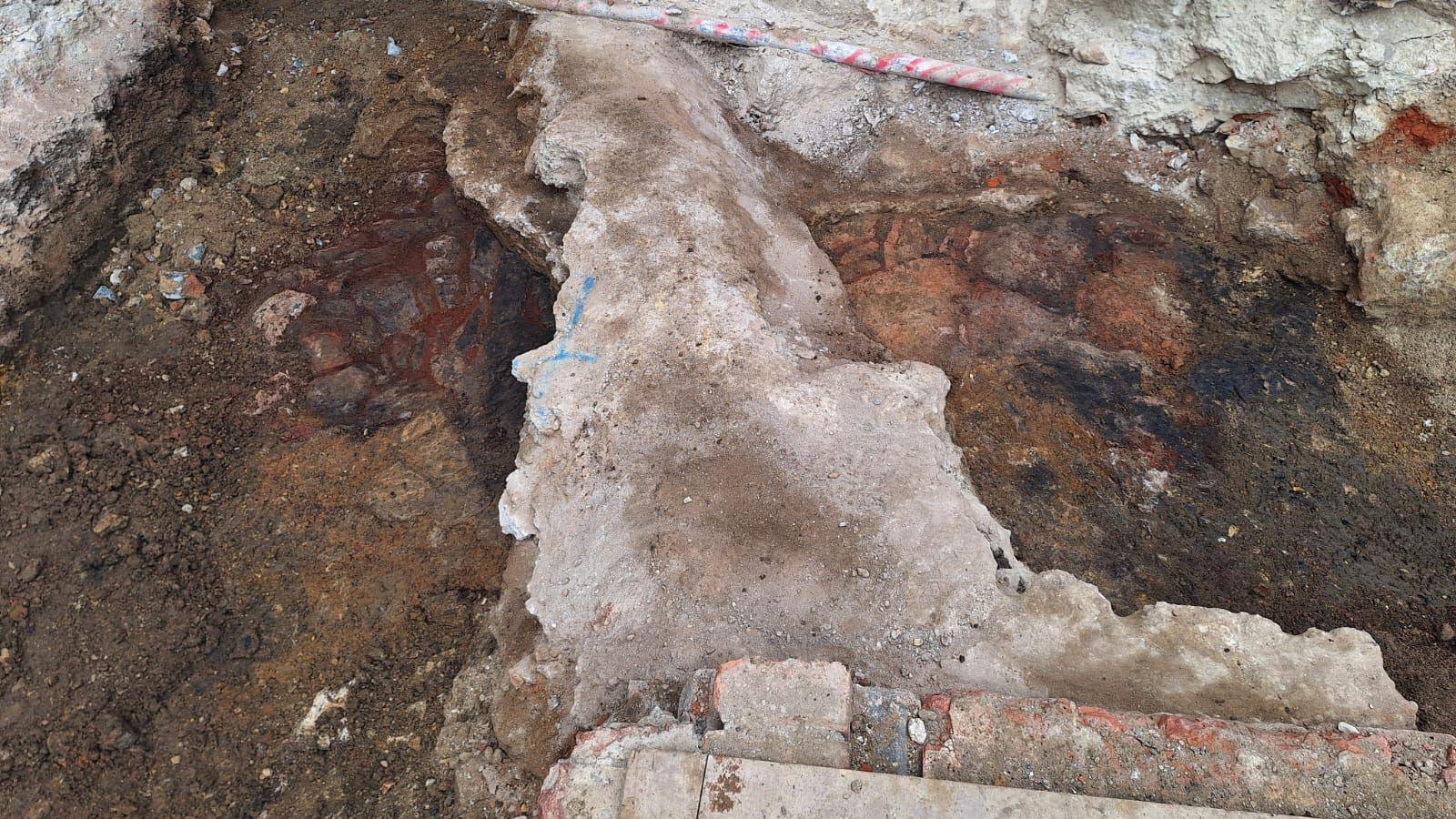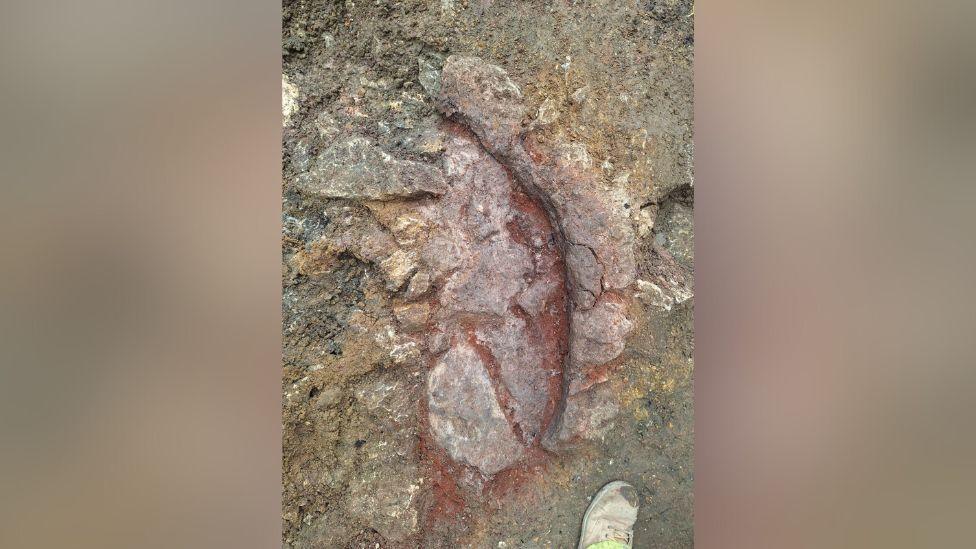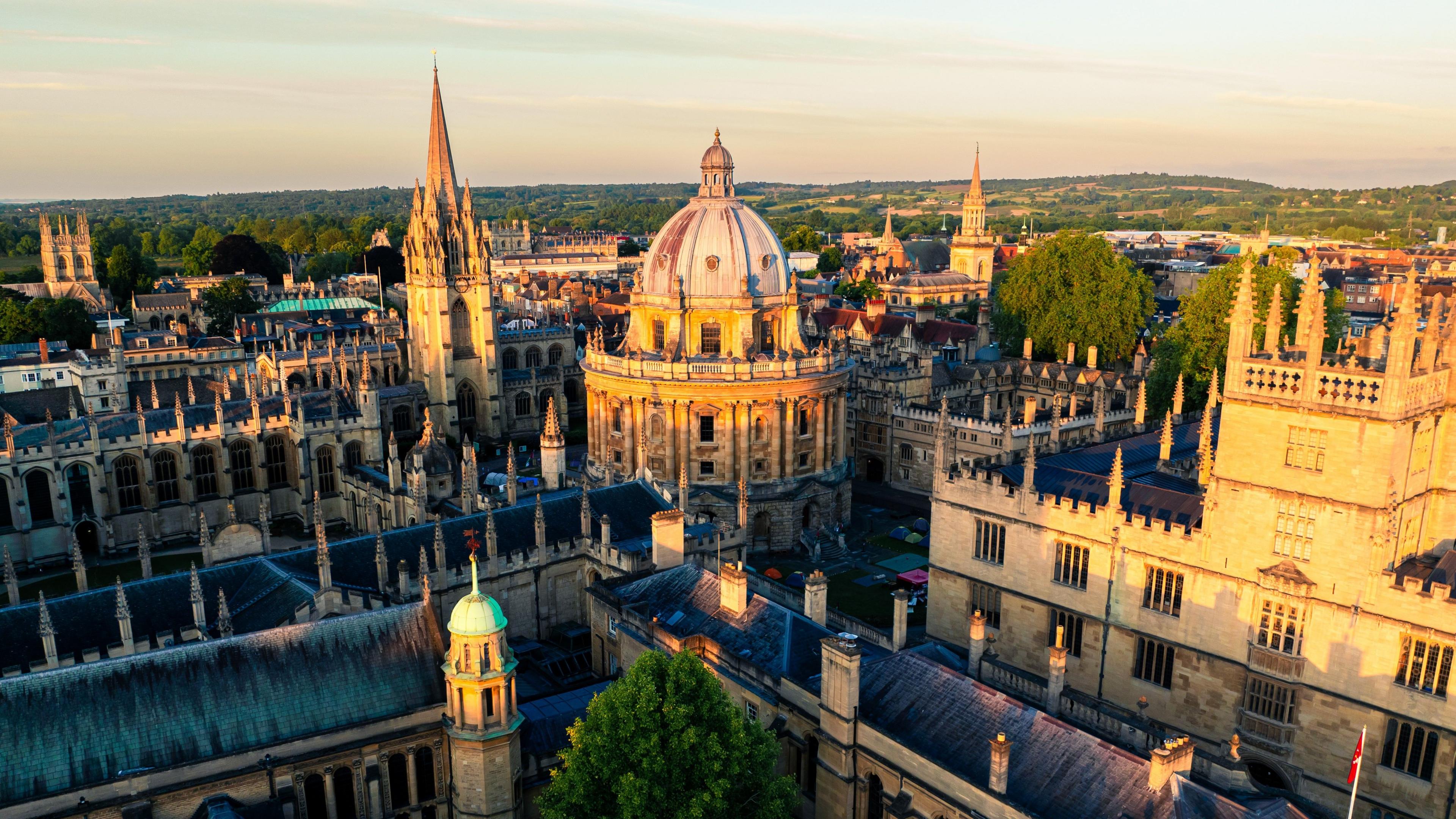Medieval origins of Oxford college unearthed

The remains of a roasting hearth from the college's original kitchen was one of the features unearthed by archaeologists
- Published
Medieval features of an Oxford college, including its original kitchen, have been unearthed during renovation works.
Archaeologists at the site said the medieval layout of Oriel College, which was founded in 1326, could now be better understood.
The dig is taking place alongside work by the college to rebuild its kitchen and bar area.
The remains of a stone wall were also discovered, which archaeologists said was probably a former boundary on the edge of land previously owned by the college.
'Archaeologically rich area'
Ben Ford, senior project manager at Oxford Archaeology, said: "The discovery of a roasting hearth and oven base tells us where Oriel's medieval kitchens were located.
"This is an archaeologically rich area of Oxford, having once been located in the late-Saxon town's south-eastern corner, before the city expanded to the east."
The discovery comes after the same renovation works unearthed Oxford's original defensive perimeter in October.
Ford added their previous understanding of the college's medieval structure from historical maps and documents had been "patchy".

A possible medieval oven base was also discovered
"These recent findings at Oriel build on our understanding of how it has developed," he said.
Oriel's Provost, Lord Mendoza CBE, who is also Chairman of Historic England, said: "I am delighted that renovation and restoration at Oriel have enabled this wonderful and important archaeological work to take place.
"There is a serendipity in finding the medieval structures just before we celebrate 700 years since the college's royal foundation in 1326."
Get in touch
Do you have a story BBC Oxfordshire should cover?
You can follow BBC Oxfordshire on Facebook, external, X (Twitter), external, or Instagram, external.
Related topics
- Published10 October 2024
